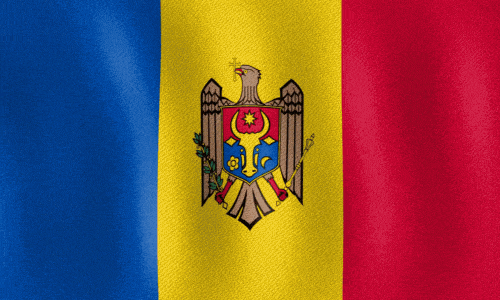The Republic of Moldova is a country in Southeastern Europe, bordered by Ukraine to the north, east, and south, and Romania to the west. It has a population of approximately 2.46 million people, making it the 142nd most populous country in the world.
Historically, Moldova was part of Ukraine from 1924 to 1940, before becoming a republic within the Soviet Union in 1940. It declared independence on August 27, 1991, following the dissolution of the USSR. Moldova covers a land area of about 33,850 square kilometers.
Its capital and largest city is Chișinău. Administratively, the country is divided into 32 districts, 13 municipalities, the autonomous region of Gagauzia, and the territories on the left bank of the Dniester River. The population is culturally diverse, with the majority practicing Orthodox Christianity. Romanian is the official language. As of 2023, Moldova’s Gross Domestic Product (GDP) was estimated at 16.54 billion USD, ranking it as the 132nd largest economy globally. The national currency is the Moldovan leu.
Geography & Population
Moldova is a landlocked nation in Eastern Europe that shares borders with Ukraine to the north, east, and south, and Romania to the west. Chișinău serves as both their capital and largest city, while Bălţi, Cahul, and Tiraspol—the de facto capital of the breakaway region—are important urban areas.
Independence
Centralised economic planning policies were prioritised in the Moldavian Soviet Socialist Republic (MSSR), which was created after the annexation of the Moldovan region in 1940. This action gained traction, and after the USSR was dissolved in the late 1980s, independence was achieved on August 27, 1991. With a stable political structure and a market economy with democratic reforms in place, this marked a sea change for Moldova.
Currently pursuing integration with European structures, Moldova is a sovereign, democratic nation dedicated to peace, global cooperation, and advancement.
Culture & Heritage
Moldova has a distinct European identity thanks to its culture, which is woven together from Romanian, Slavic, and indigenous influences. Their rich folk traditions, which include music, elaborate dances (like the Hora), and exquisite crafts, are the foundation of their sense of national pride. With a centuries-old winemaking tradition and two of the biggest underground wine cellars in the world, Cricova and Mileștii Mici, Moldova is well-known throughout the world for its wine culture.
Traditional Moldovan cuisine is a delicious blend of Eastern European and Balkan flavours, with staples such as mămăligă (polenta), placinte (savoury pies), fruits, and vegetables. Numerous festivals support their cultural life, as does an increasing output in literature and the arts.
Moldova–Pakistan Relations
The Republic of Moldova and the Islamic Republic of Pakistan maintain a positive and fruitful relationship based on mutual respect. Fostering greater intercultural understanding, providing students with access to education, and promoting economic cooperation are the primary objectives of both sectors. The Honorary Consul in Karachi is essential to future diplomatic, commercial, and investment endeavours.
